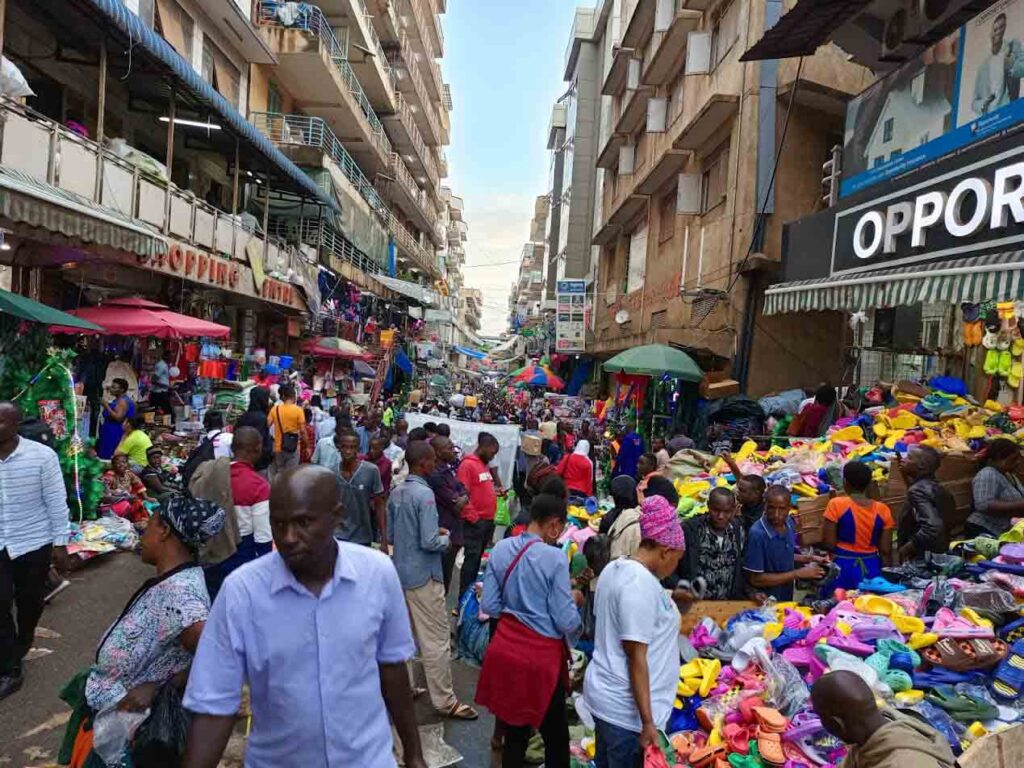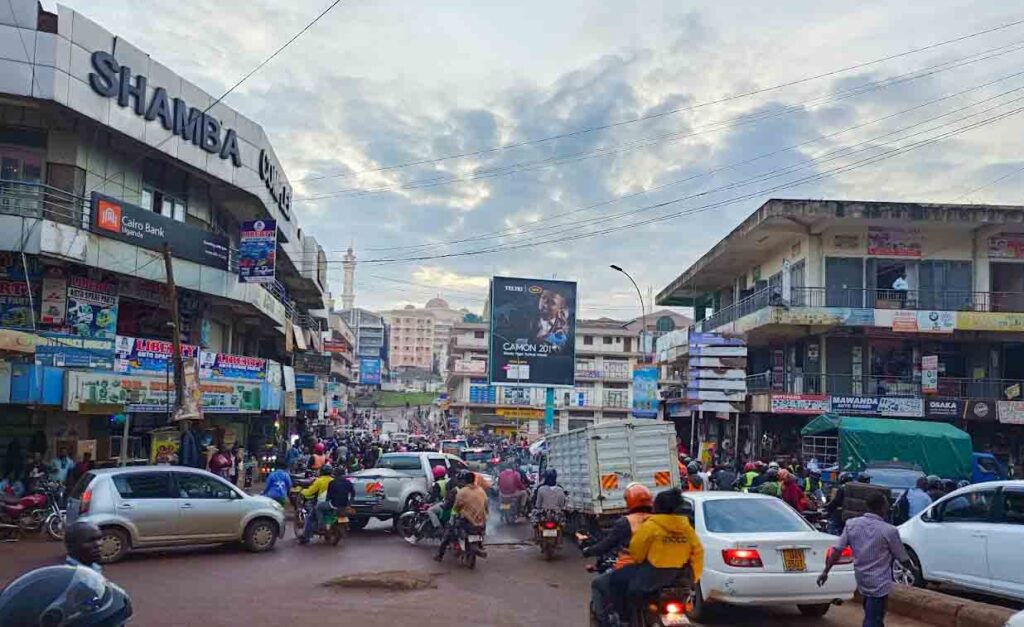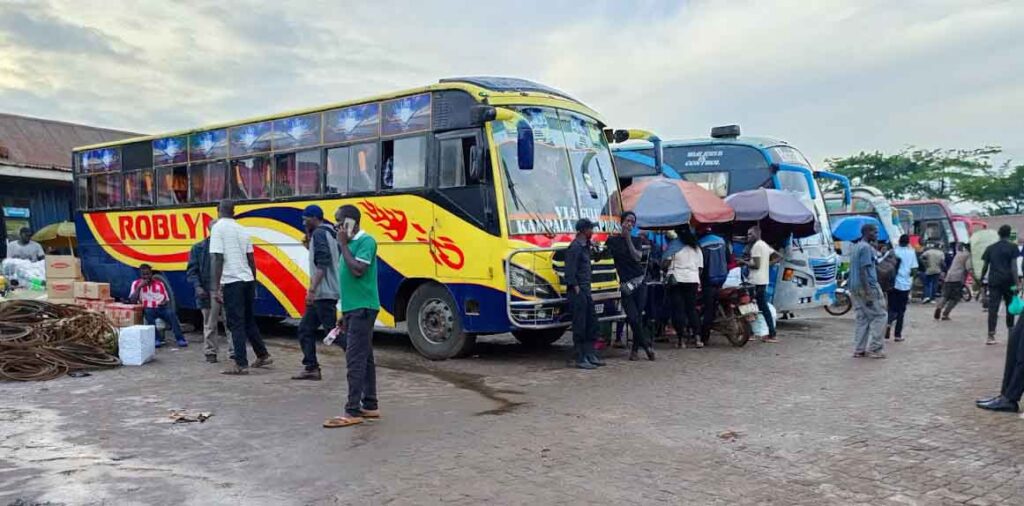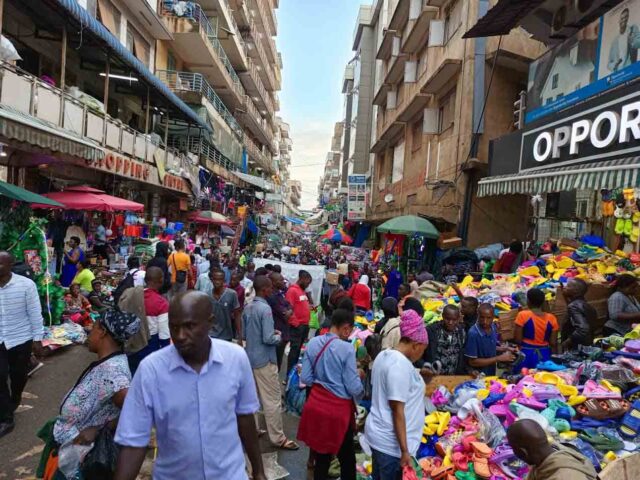By Beatrice Nakibuuka
Traditionally, Uganda’s shoppers throng downtown Kampala at the start of every December for all kinds of goods for the festive season.
It is boom time for businesses: families traveling to the countryside, crowded shopping malls, and overbooked hotels and buses are the hallmarks of the festive season.
But 2023 is proving different for Kampala. The heavy foot traffic characteristic of downtown Kampala is conspicuously missing – keeping many businesses, especially those in the leisure sector, pessimistic about this year’s festive season.
The streets, some malls, and offices around Kampala have few displayed Christmas lights, cards, streamers, and Christmas trees, among others.
Also, Christmas festive songs are being played in arcades, markets, and taxi parks.
It is loud in downtown Kampala. Vendors are scrambling for customers, mostly at the old Taxi park, commonly known as “kajja”.
The number of those calling on customers has increased, but it is still hard for them to find plenty of customers due to high prices.
This is the only usual Christmas season routine. You could notice buyers are scarce, not like the usual crowd.
Clearly, business seems unusual compared to the past seasons.
Raymond Mulindwa, a dealer in Christmas decorations says there is a reduction in the number of bookings from churches, banks, bars, non- non-government organizations (NGOs) compared to what it was in the past.
He fully stocked up his shop, preparing for the festivities, but he seems disappointed at the sluggishness of business this time.
He, however, hopes that people will make more purchases for the decorations as Christmas draws nearer.

Transport
Many would also travel to the countryside to feast with long-lost relatives and friends.
However, with the current high fuel and other commodity prices, few Kampala people can embark on the long journeys home.
The fare for the western route can go as high as Shs80,000 from the normal Shs30,000, while the eastern route goes up to Shs60,000.
Joanitah Mutuwa, a mother of two says she plans to return to her village in Mbarara before the transport fares sky rocket.
Normally, she spends Shs30,000, but during Christmas season, the price to Mbarara increases to Shs60,000 or more.
“Christmas is memorable and cheerful in the countryside. So, I have to travel. But since the transport fares to my village usually double or even triple as the big day closes in, I will leave for the village before the fares increase,” she says.
Mutuwa is leaving Kampala in the first week of December.

Reasons price hikes
With the hike in fuel prices, climate change that resulted in drought, and now heavy rains, and the lingering effects of Covid-19, Uganda’s economy and business community have continuously found themselves entangled in mud.
The soaring prices of commodities, especially food, threaten cheerful Christmas celebrations, according to Maurice Nakate, a vegetable seller in Nakasero market.
“Truth be told, food prices have shot up greatly and they keep on increasing day by day.
“My sales have reduced by more than 50 percent compared to the previous years because of the high prices of almost everything,” Nakate says.
She adds: “If you go to the market with last month’s prices in mind, you will be disappointed.
“Foods such as rice, sugar, beans, beef and fruits keep increasing in prices day by day. I even wonder how we are going to survive this Christmas and New Year celebrations.”

The situation is grim in areas outside Kampala where the majority of the people depend on subsistence farming, a sector that has been hard hit by prolonged drought, resulting in reduced crop yields that have left many hungry and poor.
In all, business owners are hopeful for change as the days shorten. But from the “look of things”, it is business unusual.






















